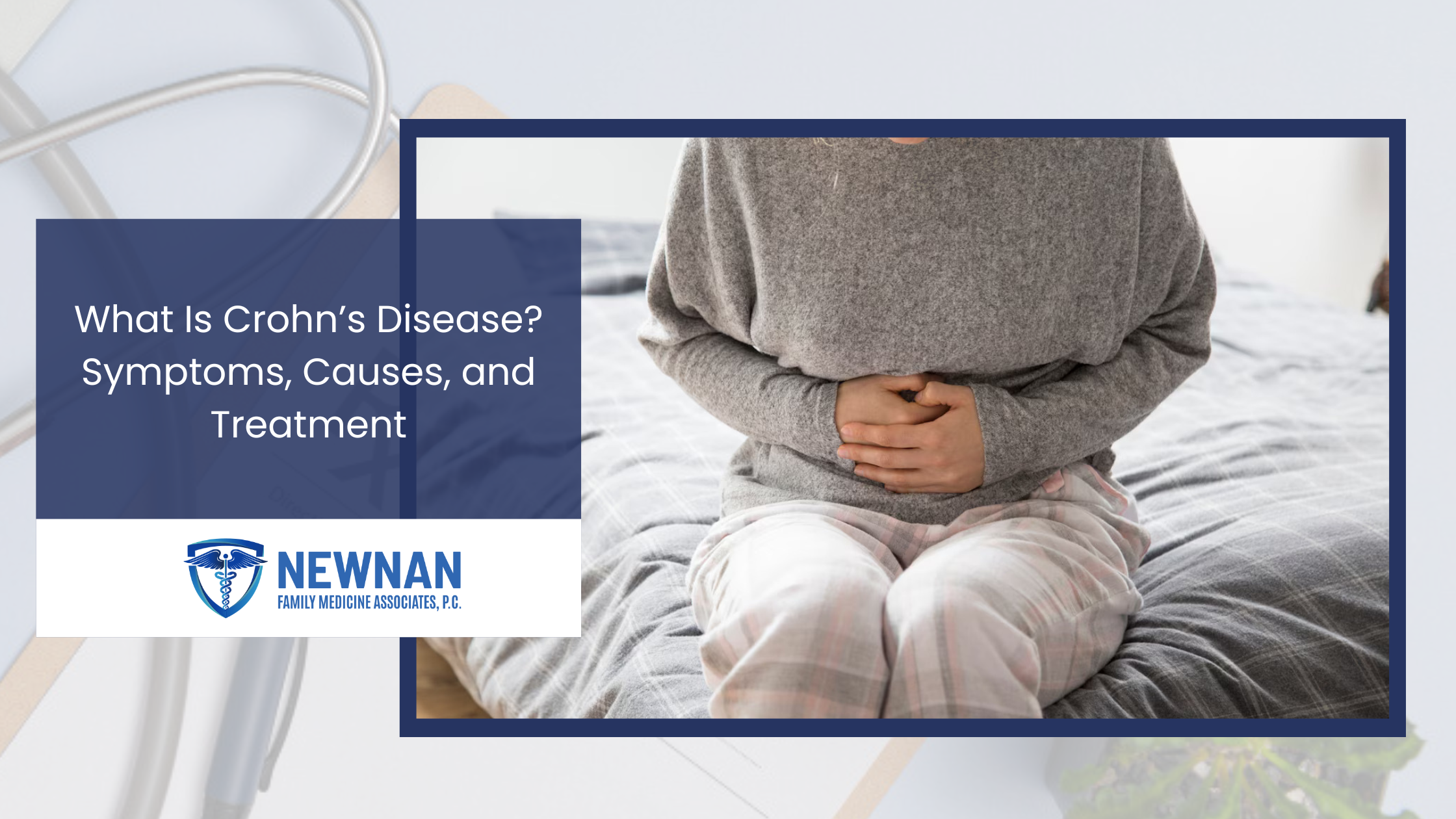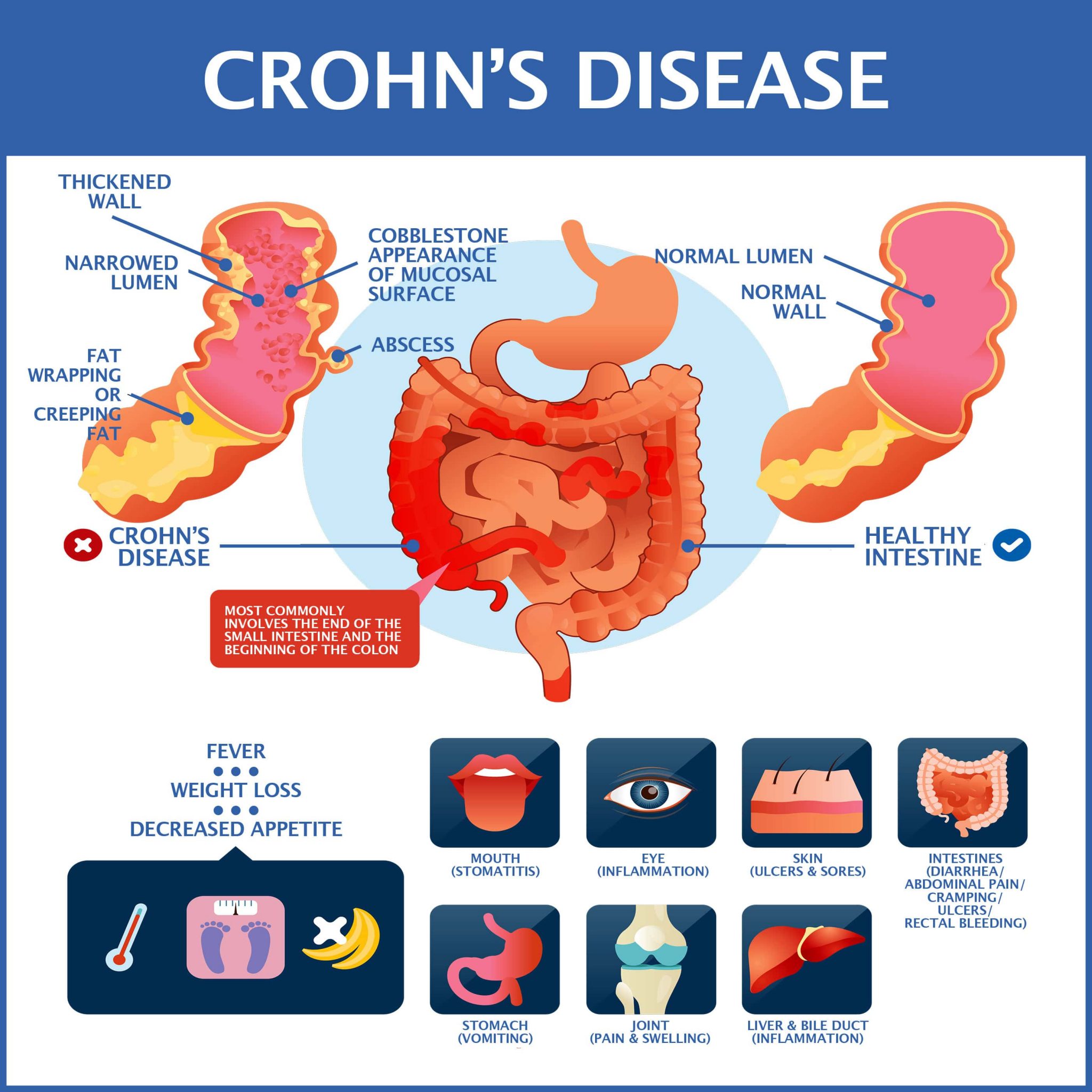World Updates | Update information about politics and social around the world
Understanding Crohn's Disease: Symptoms, Treatment, And Management
Understanding Crohn's Disease: Symptoms, Treatment, And Management - A Guide to Living with Crohn's Disease
Editor's Notes: "Understanding Crohn's Disease: Symptoms, Treatment, And Management" has published today date. With millions of people affected worldwide, it's crucial to raise awareness about Crohn's disease, its symptoms, and the various treatment options available.
Through extensive research and expert consultations, we've compiled this comprehensive guide to help individuals, caregivers, and healthcare professionals better understand Crohn's disease and its management. By providing valuable insights and practical strategies, we aim to empower individuals in their journey towards improved well-being and quality of life.
Key Differences: Crohn's Disease vs. Ulcerative Colitis
| Characteristic | Crohn's Disease | Ulcerative Colitis |
|---|---|---|
| Location of Inflammation | Any part of the digestive tract, from mouth to anus | Only affects the large intestine (colon and rectum) |
| Depth of Inflammation | Can affect all layers of the digestive tract wall | Typically limited to the inner lining of the intestine |
| Symptoms | Abdominal pain, diarrhea, weight loss, fatigue, fever | Diarrhea, rectal bleeding, abdominal pain, fatigue |
Transition to Main Article Topics
FAQ
This section provides answers to common questions and concerns regarding Crohn's disease, addressing its symptoms, treatment options, and management strategies.

What Is Crohn’s Disease? Symptoms, Causes, and Treatment - Source www.newnanfamilymedicine.com
Question 1: What are the common symptoms of Crohn's disease?
Crohn's disease can manifest in various ways, with abdominal pain, diarrhea (often bloody), weight loss, fatigue, and fever being prevalent symptoms. Other potential indicators include mouth sores, skin problems, and joint pain.
Question 2: Is there a cure for Crohn's disease?
Currently, Crohn's disease is considered a chronic condition without a definite cure. However, effective treatments exist to alleviate symptoms, induce remission, and improve overall well-being.
Question 3: What treatment options are available for Crohn's disease?
Crohn's disease treatment plans are individualized and may involve medications to reduce inflammation, suppress the immune system, or control diarrhea. In severe cases, surgery may be necessary to remove damaged portions of the digestive tract.
Question 4: How is Crohn's disease managed on a daily basis?
Effective management involves adhering to prescribed medications, maintaining a healthy diet, managing stress, and avoiding smoking. Regular monitoring by a healthcare professional is crucial to track progress and adjust treatment as needed.
Question 5: What dietary modifications can help manage Crohn's disease?
Dietary recommendations vary depending on individual tolerance and disease severity. Some general guidelines include consuming a balanced diet rich in fruits, vegetables, and lean proteins while avoiding processed foods, sugary drinks, and foods known to exacerbate symptoms.
Question 6: How does Crohn's disease impact emotional well-being?
Living with a chronic condition like Crohn's disease can have significant emotional consequences. Depression, anxiety, and social isolation are common challenges. Seeking support from family, friends, or patient support groups can be beneficial in managing these emotional aspects.
Remember, Crohn's disease management is a collaborative effort between patients, healthcare professionals, and support systems. With proper care and support, individuals can achieve improved quality of life and lead fulfilling lives.
For further exploration:
Tips for Managing Crohn's Disease
Living with Crohn's disease requires a holistic approach that encompasses medical treatment, lifestyle modifications, and emotional support. These tips can help individuals manage their symptoms and improve their overall well-being:
Tip 1: Follow a Balanced Diet
Eating a healthy diet that is tailored to individual dietary restrictions is crucial. Some helpful strategies include avoiding trigger foods, consuming fiber-rich fruits and vegetables, and staying hydrated.
Tip 2: Manage Stress
Stress can exacerbate Crohn's symptoms. Engaging in stress-reducing activities such as yoga, meditation, or spending time in nature can provide relief.
Tip 3: Quit Smoking
Smoking worsens Crohn's symptoms and increases the risk of complications. Quitting smoking can significantly improve overall health and disease management.
Tip 4: Get Regular Exercise
Moderate physical activity can reduce inflammation and improve digestion. Choose exercises that are gentle and do not worsen symptoms.
Tip 5: Take Medications as Prescribed
Adhering to medication regimens is essential for controlling symptoms and preventing flares. Follow the doctor's instructions carefully and do not hesitate to consult if any side effects occur.
These tips provide a foundation for managing Crohn's disease. By incorporating these strategies into their daily routines, individuals can alleviate symptoms, improve their quality of life, and enjoy a more fulfilling life despite the challenges of the condition.
For more comprehensive information, refer to Understanding Crohn's Disease: Symptoms, Treatment, And Management article.
Understanding Crohn's Disease: Symptoms, Treatment, And Management
Crohn's disease, a chronic inflammatory bowel disease, requires a comprehensive understanding of its symptoms, treatment options, and management strategies.
- Manifestations: Abdominal pain, diarrhea, rectal bleeding
- Pathogenesis: Immune system dysfunction triggers inflammation
- Diagnosis: Colonoscopy, biopsies, blood tests
- Treatment: Medications, biologics, surgery
- Lifestyle Modifications: Diet, stress management, regular exercise
- Monitoring: Regular checkups, endoscopies, bloodwork
These key aspects provide a framework for understanding the complexities of Crohn's disease, enabling individuals to make informed decisions about their health. Early diagnosis, optimal treatment, and effective self-management can significantly improve the quality of life for those living with this condition.

Crohn's Disease Pain Location at Raymond Heath blog - Source exycjjciv.blob.core.windows.net
Understanding Crohn's Disease: Symptoms, Treatment, And Management
Crohn's disease, a chronic inflammatory bowel disease (IBD) affecting any part of the digestive tract from mouth to anus, requires comprehensive understanding for effective management. This article explores the crucial connections between Crohn's disease symptoms, the available treatment options, and the significance of proactive patient involvement in disease management.

Crohn's Disease Signs And Symptoms - Source mavink.com
Understanding the diverse symptoms of Crohn's disease, such as abdominal pain, diarrhea, weight loss, fever, and fatigue, is paramount for timely diagnosis and initiation of appropriate treatment. Treatment strategies aim to reduce inflammation, control symptoms, and prevent complications. Medications like corticosteroids, immunosuppressants, and biologics play a significant role in achieving these goals, often in combination with dietary modifications and lifestyle changes.
Empowered patient engagement in disease management is imperative for optimizing outcomes. Regular monitoring of symptoms, adherence to treatment plans, and open communication with healthcare providers are crucial. Support groups and online resources provide valuable platforms for patients to connect and share experiences, offering emotional support and practical guidance.
By understanding Crohn's disease symptoms, available treatments, and the role of patient involvement, individuals can effectively manage their condition, improve their quality of life, and minimize long-term complications.
Conclusion
Understanding Crohn's disease necessitates a holistic approach encompassing symptom recognition, comprehensive treatment strategies, and active patient engagement. This understanding empowers individuals to proactively manage their condition, navigate treatment options, and optimize their overall well-being.
Ongoing research and advancements in medical therapies continue to improve the outlook for individuals with Crohn's disease. By staying informed and actively participating in their care, patients can effectively manage their symptoms, enhance their quality of life, and look towards the future with hope and resilience.